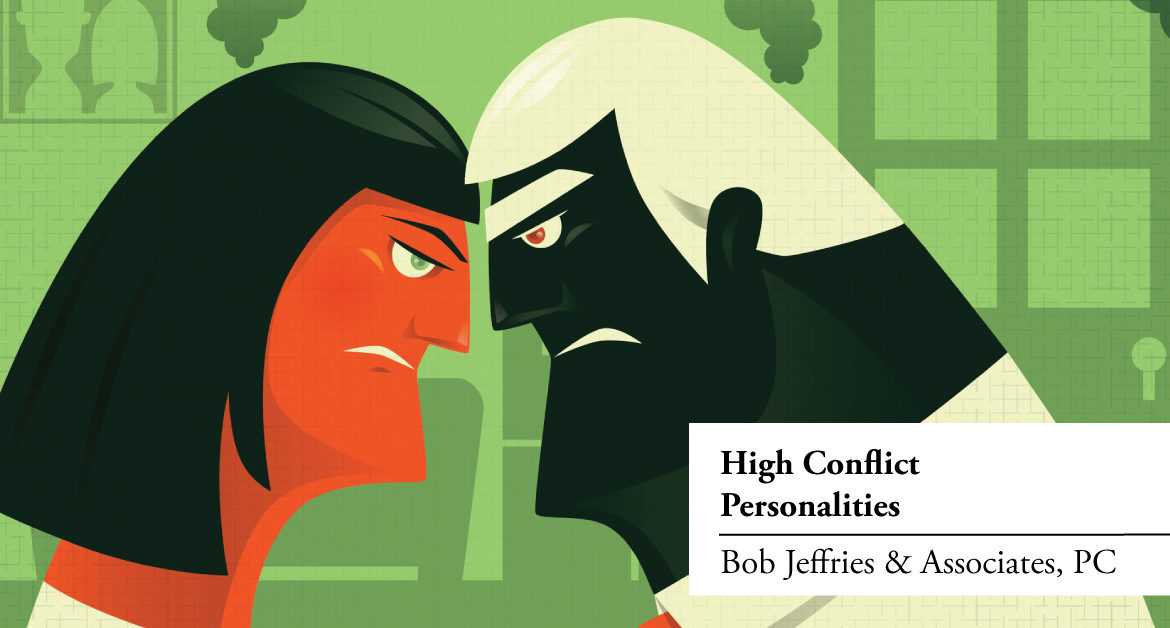High Conflict Personalities
I was a business litigator in Los Angeles for ten years before I started practicing family law. I dealt with failed real estate deals, investment fraud and fights between competitors. I never once thought that the people on either side of the case had a mental health problem.
After moving to Virginia Beach, I started to take family cases and almost, immediately, noticed a pattern in child custody disputes. In most cases, fathers were willing for the mother to have primary custody of the children. When they contested custody, it was most often due to concerns about the mother’s behavior.
Repeatedly I saw mothers with two traits. The first was a tendency to get angry out of proportion to the cause. The second was a long string of failed relationships.
I looked for literature about this pattern and found nothing. I asked psychologists I knew if they had a name for this or recognized it as a syndrome. But neither effort led me anywhere. Finally, 2 years ago a psychologist whose son was going through a divorce sent me some books by a licensed clinical social worker with a law degree named Bill Eddy. As far as I know, he is the only mental health professional who has written about it.
He identified the following traits as characteristics of what he calls high conflict personalities:
(1) all or nothing thinking,
(2) extreme emotions,
(3) extreme behaviors and
(4) blaming others. The “my way or the highway” spouse is an example of the first.
The out-of-proportion anger my clients described to me is the kind of extreme emotion he talks about.
The extreme behaviors I have seen include a mother who asked the child’s father to keep their son while she had surgery and then called the police from the hospital claiming he had kidnapped the child. That mother had alienated everyone in her life except her then-current boyfriend and I was sure that he would soon find himself on the other side of a burned bridge as well.
These people have difficulty seeing things from other’s point of view. You are either with them or against them. They don’t admit fault because their way of thinking does not allow the possibility that they could ever be to blame. They can’t easily compromise. All of these traits together break their relationships and, where there are children, lead to court fights over who will have custody.
I wish the psychology profession would take a look at what Bill Eddy has identified and study it systematically. His observations are no substitute for`proper scientific investigation and not everything he says matches what I have observed. More professional attention to this is needed.
Mr. Eddy has now made a business out of providing seminars and training to help companies deal with the issue in their workforce.



